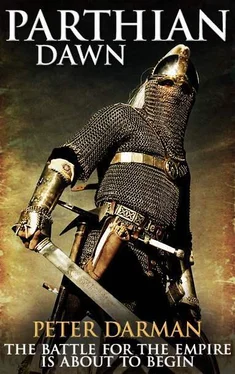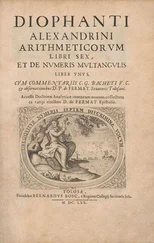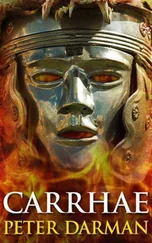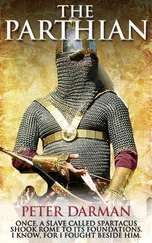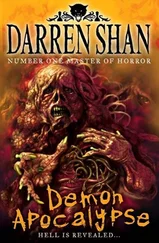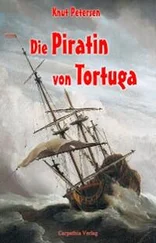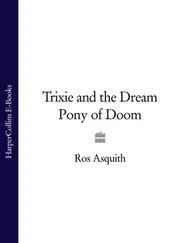Peter Darman - Parthian Dawn
Здесь есть возможность читать онлайн «Peter Darman - Parthian Dawn» весь текст электронной книги совершенно бесплатно (целиком полную версию без сокращений). В некоторых случаях можно слушать аудио, скачать через торрент в формате fb2 и присутствует краткое содержание. Год выпуска: 2012, Жанр: Исторические приключения, на английском языке. Описание произведения, (предисловие) а так же отзывы посетителей доступны на портале библиотеки ЛибКат.
- Название:Parthian Dawn
- Автор:
- Жанр:
- Год:2012
- ISBN:нет данных
- Рейтинг книги:3 / 5. Голосов: 1
-
Избранное:Добавить в избранное
- Отзывы:
-
Ваша оценка:
- 60
- 1
- 2
- 3
- 4
- 5
Parthian Dawn: краткое содержание, описание и аннотация
Предлагаем к чтению аннотацию, описание, краткое содержание или предисловие (зависит от того, что написал сам автор книги «Parthian Dawn»). Если вы не нашли необходимую информацию о книге — напишите в комментариях, мы постараемся отыскать её.
Parthian Dawn — читать онлайн бесплатно полную книгу (весь текст) целиком
Ниже представлен текст книги, разбитый по страницам. Система сохранения места последней прочитанной страницы, позволяет с удобством читать онлайн бесплатно книгу «Parthian Dawn», без необходимости каждый раз заново искать на чём Вы остановились. Поставьте закладку, и сможете в любой момент перейти на страницу, на которой закончили чтение.
Интервал:
Закладка:
‘I will pray for your happiness, lady, for you truly deserve it.’
‘And we promise,’ added Gallia, ‘that we will come and see you in your home soon.’
‘I will look forward to that day, my friends.’
We watched Vardan, Axsen and their royal guards trot away from the palace, and we waved when Axsen turned in the saddle and raised an arm to us both in salute.
‘I like her,’ said Gallia.
‘So do I.’
Chapter 3
The departure of Vardan and Axsen was the signal that we too had to prepare for our journey to our new home. The training of the legion went on apace under the watchful eye of Domitus, while Nergal took his horsemen out of the city every day to keep their skills sharp. As well as the fifty Parthians of the Companions, there were sixty others who had volunteered to come to Dura with us, mostly the younger sons of the landowners of my father’s kingdom. Hatra’s kings originally owned all the land in the kingdom, but over the years tracts of it were given to vassal lords in return for military service. These lands were mostly along the fertile banks of the Tigris and Euphrates rivers. The lords in turn granted small plots of their territory to their servants and others who were landless, in return for which they paid a portion of their yearly crops to their lord. The rest of their crop they used for food or sold in the markets. The areas around the two rivers are fertile, made more so by the irrigation ditches, dams, canals and dikes that are used to control the spring floodwaters that come from the mountains far to the north. This results in great surpluses of wheat, barley, millet, beans, sesame seeds, dates, grapes, figs, melons and apples. As well as working his land, every farmer has to maintain his skill with a bow and practise with it on a regular basis. Every Parthian boy is given a bow before he can walk, and so by the time he becomes a man at sixteen he is an expert archer.
Most farmers were able to purchase their own horse, and when their lord called upon them for military service they rode off to war on their own mounts. The lords, of course, had their own herds of horses for themselves their sons and their guards. And when the call to arms came from my father, thousands of horse archers answered that call.
Horse archers could harry and wear down an enemy with their incessant volleys of arrows, always remaining beyond the spears and swords of opposition cavalry and infantry. But the most highly prized cavalry in the Parthian Empire were cataphracts — fully armoured men riding on armoured horses. Cataphracts were organised into formations called dragons, which numbered a thousand men divided into hundred-man companies, but very few of the empire’s kingdoms could muster a dragon of cataphracts.
Each cataphract wore a rawhide, thigh-length coat on which was fastened dozens of overlapping iron and bronze scales, the different coloured metals glinting and shimmering in the sunlight. On his head he wore a steel helmet with steel cheekguards, and nose and neck guards. His arms and legs were protected by rings of overlapping steel plates, while his horse also wore a rawhide coat covered in armour. In this way the beast’s whole body and neck were protected from enemy spears, swords and arrows. Even the horse’s head was covered in armour, including its eyes that were protected by metal grills.
The primary weapon of the cataphract was a long lance called a kontus with a shaft as thick as a man’s wrist and tipped with a heavy steel point. When levelled, the lance required both hands to hold it secure either on the right or left side of the saddle. Upon impact the momentum of horse and rider could propel the lance through two enemy soldiers. The rider released the lance and then went to work on the ranks of the enemy with his sword, axe or mace, the latter a brutal weapon that could cave in a man’s skull even if he was wearing a helmet. The cataphract was truly a fearsome warrior and my father had fifteen hundred of them. But weapons, horses and armour for both man and beast were expensive and required constant maintenance. Thus the royal stables and armouries at Hatra were staffed by hundreds of squires, craftsmen, blacksmiths and armourers, all working constantly to ensure horses were groomed, fed, watered and shod with iron shoes, that armour was repaired and new suits made, plus the fixing and production of swords, axes, maces, spears, lances, arrows and bows. Any kingdom would find such an endeavour financially crippling, but Hatra was fortunate that it was beloved of Shamash, who had gifted it the Silk Road.
The Silk Road was the name of the trade route that connected China in the east with the kingdoms on Parthia’s western frontiers, including Rome. It was so named because the most precious commodity that was transported along the route, and which Rome had an insatiable desire for, was silk. And so great quantities of the precious material were transported by caravan from China through the Parthian Empire, and the Silk Road ran straight through Hatra, to the city itself and then north and west to the city of Antioch. From there it was transported by sea across the Mediterranean to Italy and Rome. The kings of the empire guarded the Silk Road jealously, establishing military strongpoints along its whole length across Parthia, and in return for their safety the merchants who used the Silk Road paid customs duties levied on their goods. In this way they profited handsomely when their wares arrived at their destinations unmolested, and Hatra grew rich from the unending number of caravans that traversed the kingdom each year.
‘But Dura is not Hatra,’ said my father.
He had asked me and Gallia to attend the weekly council meeting that was held in a small antechamber at the rear of the palace’s throne room. It was a plain room with a large table and chairs with a hide map of the Parthian Empire on one wall. Those present were my father, Kogan, Addu, Assur, Vistaspa and Vata in his capacity as the governor of Nisibus. Gallia’s presence was most unusual as women were forbidden to attend the royal council, at least until today. The expressions on the faces of Kogan, Addu and Assur conveyed their disapproval of this blonde-haired foreigner being seated among them, but Gallia ignored their frowns. Vistaspa wore his usual cold, aloof expression.
‘I know that, father.’
He lent back in his chair and regarded me for a moment. ‘Do you? Then what do you know about Dura?’
I shrugged. ‘It is a city on the west bank of the Euphrates. The opposite bank belongs to Hatra, so we shall be neighbours, father.’
A thin smile creased his lips. ‘While you have been here I took the trouble to find out a little more about Dura, and as Gallia is now your queen I thought it fitting that she hears what I have discovered.’
Gallia smiled at him, Assur frowned again and my father nodded at her. ‘Dura occupies a thin strip of land along the western bank of the Euphrates, as you say. The city was originally established by the Greeks over two hundred years ago, by the followers of Alexander the Great. It has been part of the Parthian Empire for less than fifty years, and in that time it has been more like a fortress outpost than a city. It was captured by Sinatruces when he was much younger than he is now, and ever since that time it was the domain of the King of Kings, to do with as he saw fit.
‘No one wanted to live in Dura or along the western bank of the Euphrates, so Sinatruces sent adventurers, exiles and those he wanted to be rid of to settle this new land. The result is that those who are now landowners view themselves as a separate people from the rest of the empire. They are sullen and resentful, and you, my son, are their new king. And if that was not bad enough, the desert that borders Dura’s lands are the territory of the Agraci.’
Читать дальшеИнтервал:
Закладка:
Похожие книги на «Parthian Dawn»
Представляем Вашему вниманию похожие книги на «Parthian Dawn» списком для выбора. Мы отобрали схожую по названию и смыслу литературу в надежде предоставить читателям больше вариантов отыскать новые, интересные, ещё непрочитанные произведения.
Обсуждение, отзывы о книге «Parthian Dawn» и просто собственные мнения читателей. Оставьте ваши комментарии, напишите, что Вы думаете о произведении, его смысле или главных героях. Укажите что конкретно понравилось, а что нет, и почему Вы так считаете.
